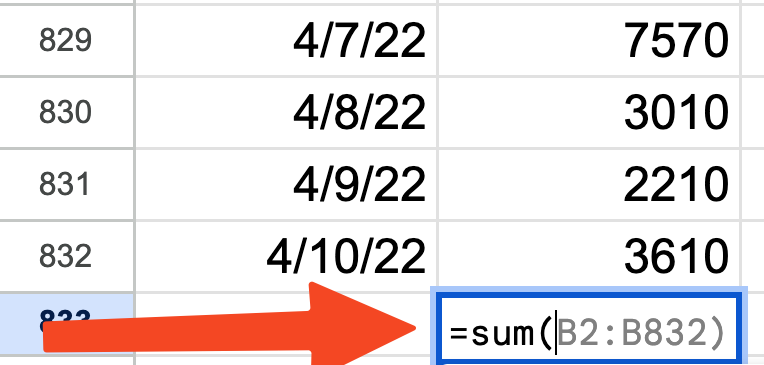Digging for Insights
It is 2022, and I am sitting at my workstation, diving into platform usage data. This morning, I have already uncovered key insights: the number of organizations using our platform and the total tests administered. But there are still several outstanding questions, one being: "How many unique people have taken a test on the platform this year?"
As I start creating calculations to find my answer, excitement creeps in. There is a unique thrill in the moment just before uncovering a new insight. I love this feeling. Who knows what questions this new insight will uncover?
Then comes the pivotal moment. I have completed my calculations, and all that remains is to display the number. This moment often looks something like this:
But before hitting enter, I pause. I have learned over years of analysis that this pause is crucial. Instead of rushing to see the result, I ask myself, “What do I think the number is?”
The Power of a Guess
Why pause? Because guessing forces you to confront your intuition—to externalize what you think you know. Writing down my guess makes it real, grounding it in reality and leaving no room for convenient forgetfulness. My guess, now ink on paper, stares back at me.
When the result appears, I compare it to my guess, calculating the difference as a percentage. This delta reveals the calibration of my intuition. Sometimes, I am close. But more often than not, the gap is humbling—my estimate can be off by orders of magnitude.
These moments are invaluable because they highlight blind spots. A significant discrepancy between my guess and reality is a red flag, signaling a gap in my understanding. This gap becomes an opportunity to dig deeper, refine my assumptions, and learn something new.
This feedback loop is immediate, clear, and impactful. Over time, this practice sharpens intuition, making it a reliable guide rather than a source of overconfidence.
Fighting the Overconfidence Effect
Human intuition is prone to bias, particularly the overconfidence effect—our tendency to overestimate our knowledge and accuracy. Without intentional calibration, this bias can lead us astray. The act of pausing, guessing, and testing those guesses against reality is how we fight back. It is how we stay grounded.
Calibration in Teams
This practice isn’t just for individuals. When presenting data to others, I often ask them to guess before sharing the result. This simple exercise engages them more deeply, encourages curiosity, and helps them calibrate their own intuition. Over time, teams that practice calibration together make better, more informed decisions.
Closing Thoughts
This calibration is a simple habit that yields profound results. By continuously testing and refining our assumptions, we align our intuition more closely with reality. Whether applied individually or across teams, this practice transforms data analysis into a learning experience—one that sharpens our understanding and improves our decisions.
So next time you are on the brink of a new insight, pause. Guess. Write it down. And see where the difference takes you. Good luck!



